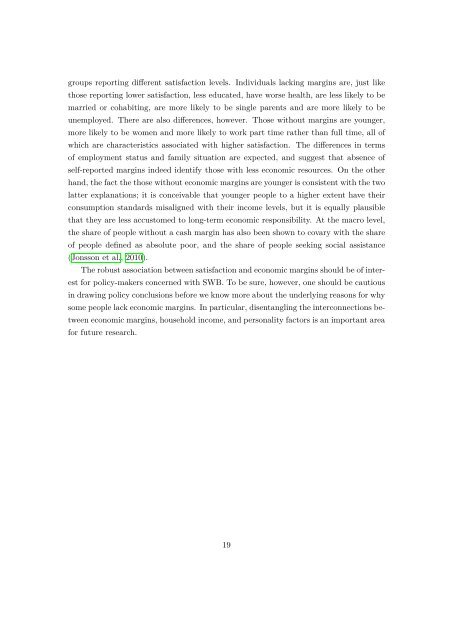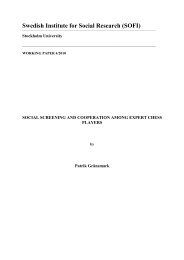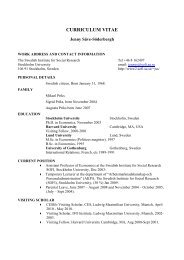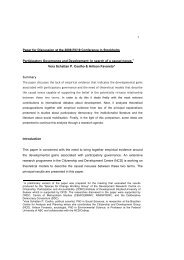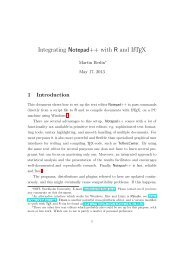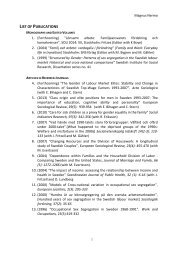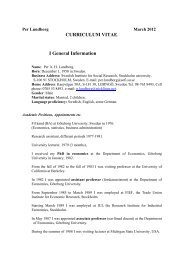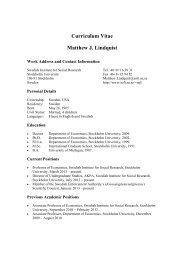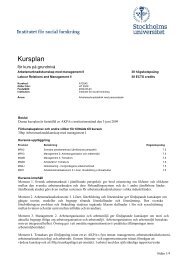Subjective Well-Being, Income and Economic Margins - DiVA
Subjective Well-Being, Income and Economic Margins - DiVA
Subjective Well-Being, Income and Economic Margins - DiVA
You also want an ePaper? Increase the reach of your titles
YUMPU automatically turns print PDFs into web optimized ePapers that Google loves.
groups reporting different satisfaction levels. Individuals lacking margins are, just like<br />
those reporting lower satisfaction, less educated, have worse health, are less likely to be<br />
married or cohabiting, are more likely to be single parents <strong>and</strong> are more likely to be<br />
unemployed. There are also differences, however. Those without margins are younger,<br />
more likely to be women <strong>and</strong> more likely to work part time rather than full time, all of<br />
which are characteristics associated with higher satisfaction. The differences in terms<br />
of employment status <strong>and</strong> family situation are expected, <strong>and</strong> suggest that absence of<br />
self-reported margins indeed identify those with less economic resources. On the other<br />
h<strong>and</strong>, the fact the those without economic margins are younger is consistent with the two<br />
latter explanations; it is conceivable that younger people to a higher extent have their<br />
consumption st<strong>and</strong>ards misaligned with their income levels, but it is equally plausible<br />
that they are less accustomed to long-term economic responsibility. At the macro level,<br />
the share of people without a cash margin has also been shown to covary with the share<br />
of people defined as absolute poor, <strong>and</strong> the share of people seeking social assistance<br />
(Jonsson et al., 2010).<br />
The robust association between satisfaction <strong>and</strong> economic margins should be of interest<br />
for policy-makers concerned with SWB. To be sure, however, one should be cautious<br />
in drawing policy conclusions before we know more about the underlying reasons for why<br />
some people lack economic margins. In particular, disentangling the interconnections between<br />
economic margins, household income, <strong>and</strong> personality factors is an important area<br />
for future research.<br />
19


